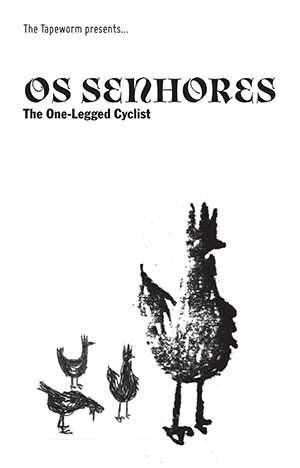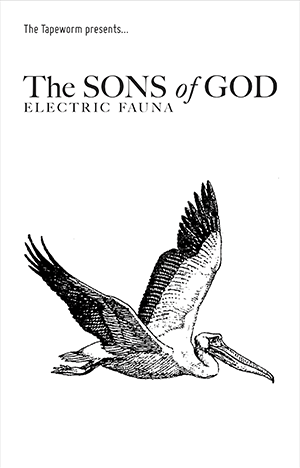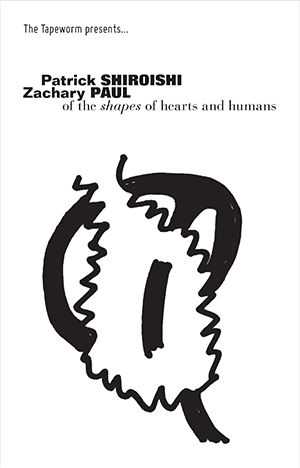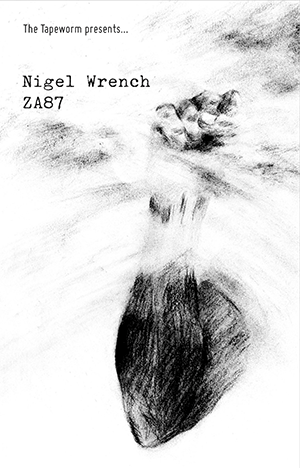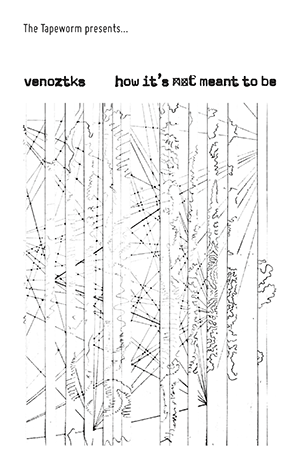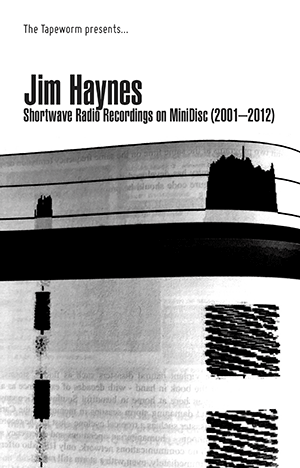TTW#133 – Os Senhores – The One-Legged Cyclist
Cassette only – limited edition of 100 copies
Buy on Bandcamp – shipping 25 September
A. One Leg
B1. The Other Leg
B2. The Other Other Leg
Recorded at various live venues, studios and rehearsal rooms in Portugal, 1985-1990. Anselmo Canha - bass, guitars, keyboards. Heitor Alvelos - vocals, percussion, keyboards, clarinet. Helena Luísa Soares - vocals. José Maria Lopes - guitars, bass, percussion. Orquídea Calisto - keyboards, violin. Paulo Solá - drums, percussion. Revisited 2018: Edited, sequenced and mixed by Heitor Alvelos. Mastered by Anselmo Canha. Cover illustration by Anselmo Canha, 1986.
“This tape gathers a series of demos and live recordings of a short-lived Portuguese band from the 1980s: Os Senhores (1985-87, briefly resurrected in 1990).
Portugal was just beginning to open up to the international cultural scene back then; for a younger generation of creatives, this meant a visceral rejection of tradition (“Fado??? The past!”), and a thirsty embracing of whichever echoes made it from abroad, often in the shape of expensive import vinyl or hissy third or fourth-generation cassette dubs: from post-punk to post-modern, we all wanted to break from the old paradigm. And yet we were painfully blind to the fact that we were largely replicating another paradigm: we simply lacked the broader conceptual and contextual milieu in order to push things further beyond the peripheral or derivative.
A venue in Lisbon, Rock Rendez Vous, was congregating this younger generation through a series of rock marathons and competitions. We dutifully applied and stepped on stage for the first time ever in March 1986; track three of this tape begins with the first few seconds of such gig. A handful of gigs followed, and we recorded various sets of demos at Luís Carlos’ Studio X in Porto.
Paradoxically, our objective lack of formal musical training and relative scarcity of musical skills provided us with a potential degree of freedom. And oh, we were free to be our vicarious selves: the female singer was a Siouxsie devotee, the male singer was heavily into Krautrock, the guitar player wanted to play the blues, the drummer just wanted to hit stuff. The bass player and the keyboard player held it together somehow. This seemingly impossible mix of aesthetics could have produced something special; instead, we tended to cancel each other out. We were just too often caught between the dilemma of pursuing said freedom (and risk illegibility, even to ourselves), and the desire to prove our worth within the familiar canons.
As a consequence, there is little of musical or aesthetic interest in these recordings: their value is essentially documentary, more of a snapshot of a given era. Yet their release provided us with an opportunity to revisit the source material and have a go at reconfiguring it into something else that, while remaining faithful to its original references, would make a somewhat better statement in itself.
We tried quite a few approaches, to no avail… some worked sonically but distanced themselves too much from the original, thus losing the plot; other attempts just seemed dragged down by the linearity of the original compositions.
In the end, we opted for a more straightforward approach in the re-working of the original sources: we had various recordings play simultaneously, without further tweaking. Whatever fell on top of whatever else, so it stayed.
In this way were able to preserve the original sonic, structural and contextual aspects of each recording, while somehow amplifying the tightrope of chaos/ineptitude we traversed throughout those two years. And just as decisively, through this process of superimposing, we were able to reveal a few odd juxtapositions that, had we had the vision back then, could have been infinitely more promising than the elusive post-something format we obsessively kept hunting down.
So what do you know: the first release by Os Senhores, over three decades after we split (and not very amicably, as rock and roll would have it). Hey, it took us slightly longer than originally expected. And we are all now back in touch: old age has its perks.” – Heitor Alvelos, Porto, 16 March 2020


